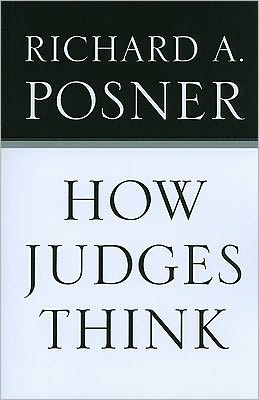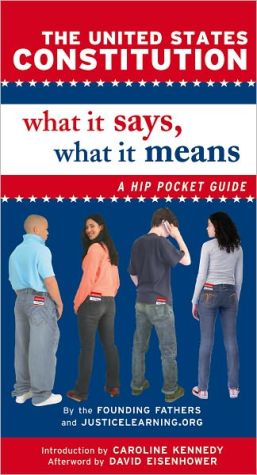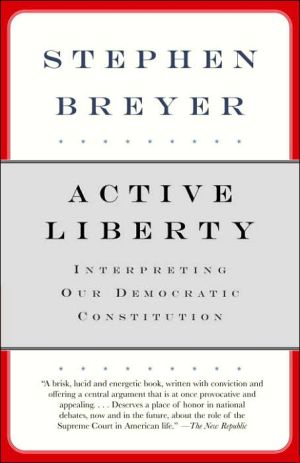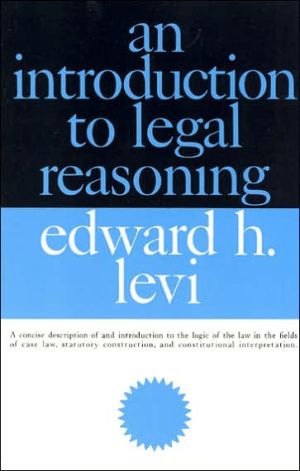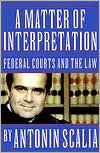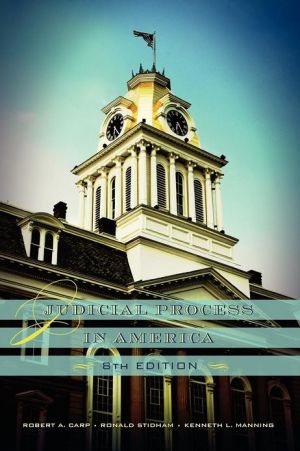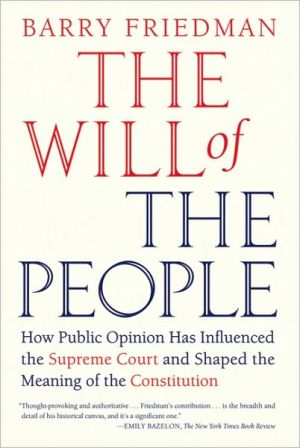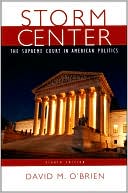How Judges Think
A distinguished and experienced appellate court judge, Richard A. Posner offers in this new book a unique and, to orthodox legal thinkers, a startling perspective on how judges and justices decide cases. When conventional legal materials enable judges to ascertain the true facts of a case and apply clear pre-existing legal rules to them, Posner argues, they do so straightforwardly; that is the domain of legalist reasoning. However, in non-routine cases, the conventional materials run out and...
Search in google:
From the book:Ivan Karamazov said that if God does not exist everything is permitted, and traditional legal thinkers are likely to say that if legalism (legal formalism, orthodox legal reasoning, a "government of laws not men," the "rule of law" as celebrated in the loftiest "Law Day" rhetoric, and so forth) does not exist everything is permitted to judges—so watch out! Legalism does exist, and so not everything is permitted. But its kingdom has shrunk and greyed to the point where today it is largely limited to routine cases, and so a great deal is permitted to judges. Just how much is permitted and how they use their freedom are the principal concerns of this book.. . .I am struck by how unrealistic are the conceptions of the judge held by most people, including practicing lawyers and eminent law professors, who have never been judges—and even by some judges. This unrealism is due to a variety of things, including the different perspectives of the different branches of the legal profession—including also a certain want of imagination. It is also due to the fact that most judges are cagey, even coy, in discussing what they do. They tend to parrot an official line about the judicial process (how rule-bound it is), and often to believe it, though it does not describe their actual practices. This book parts the curtain a bit. Publishers Weekly Posner is unique in the world of American jurisprudence, a highly regarded U.S. appellate judge and a prolific and controversial writer on legal philosophy (The Little Book of Plagiarism). Opinionated, sarcastic and argumentative as ever, Posner is happy to weigh in not only on how judges think, but how he thinks they should think. When sticking to explaining the nine intellectual approaches to judging that he identifies, and to the gap between legal academics and judges, and his well-formulated pragmatic approach to judging, Posner is insightful, accessible, often funny and a model of clarity. When he charges off into longstanding arguments with fellow legal theorists (liberal commentator Ronald Dworkin, for one) or examines doctrinal discrepancies in the opinions of Supreme Court justices, he writes for a far more limited audience. For the record, although Justice Scalia is a favorite target, none of the Supreme Court nine escapes Posner's lethally sharp pen. Posner's two major points-that to a great extent judges make decisions based not on theory but on who they are, their gender, education, class and experiences, and that "the Supreme Court is a political court" regardless of what theory of constitutional interpretation justices claim-are well worthwhile and deeply rooted in common sense and experience. (Apr.)Copyright © Reed Business Information, a division of Reed Elsevier Inc. All rights reserved.
Introduction 1Pt. 1 The Basic Model1 Nine Theories of Judicial Behavior 192 The Judge as Labor-Market Participant 573 The Judge as Occasional Legislator 784 The Mind of the Legislating Judge 93Pt. 2 The Model Elaborated5 The Judicial Environment: External Constraints on Judging 1256 Altering the Environment: Tenure and Salary Issues 1587 Judicial Method: Internal Constraints on Judging 1748 Judges Are Not Law Professors 2049 Is Pragmatic Adjudication Inescapable? 230Pt. 3 Justices10 The Supreme Court Is a Political Court 26911 Comprehensive Constitutional Theories 32412 Judicial Cosmopolitanism 347Conclusion 369Acknowledgments 379Index 381
\ Forbes.comA prolific and brilliant writer, Posner's How Judges Think is perhaps his most illuminating work for its profound, and sometimes polemical, insights into the judicial process...Judge Posner's examination of the issues is thorough, scholarly and riveting. He has written an important book—a must read not just for lawyers, but also for anyone who wants to understand how the inscrutable, and sometimes oracular, process of judging really works.\ — James D. Zirin\ \ \ \ \ \ New York Times on the WebPosner's latest book, How Judges Think, is important, if only because it's Posner looking at his own profession from the inside. Two of the chapters, "Judges Are Not Law Professors" and "Is Pragmatic Adjudication Inescapable?," are worth the price of admission by themselves. The book can be read as one long screed against the jurisprudence of Supreme Court Justice Antonin Scalia, and stands as a refutation to those who believe the category of conservative can lazily be applied to a mind as independent as Posner's.\ — Barry Gewen\ \ \ New York Times onlinePosner's latest book, How Judges Think, is important, if only because it's Posner looking at his own profession from the inside. Two of the chapters, "Judges Are Not Law Professors" and "Is Pragmatic Adjudication Inescapable?," are worth the price of admission by themselves. The book can be read as one long screed against the jurisprudence of Supreme Court Justice Antonin Scalia, and stands as a refutation to those who believe the category of conservative can lazily be applied to a mind as independent as Posner's.\ — Barry Gewen\ \ \ \ \ \ Publishers WeeklyPosner is unique in the world of American jurisprudence, a highly regarded U.S. appellate judge and a prolific and controversial writer on legal philosophy (The Little Book of Plagiarism). Opinionated, sarcastic and argumentative as ever, Posner is happy to weigh in not only on how judges think, but how he thinks they should think. When sticking to explaining the nine intellectual approaches to judging that he identifies, and to the gap between legal academics and judges, and his well-formulated pragmatic approach to judging, Posner is insightful, accessible, often funny and a model of clarity. When he charges off into longstanding arguments with fellow legal theorists (liberal commentator Ronald Dworkin, for one) or examines doctrinal discrepancies in the opinions of Supreme Court justices, he writes for a far more limited audience. For the record, although Justice Scalia is a favorite target, none of the Supreme Court nine escapes Posner's lethally sharp pen. Posner's two major points-that to a great extent judges make decisions based not on theory but on who they are, their gender, education, class and experiences, and that "the Supreme Court is a political court" regardless of what theory of constitutional interpretation justices claim-are well worthwhile and deeply rooted in common sense and experience. (Apr.)\ Copyright © Reed Business Information, a division of Reed Elsevier Inc. All rights reserved.\ \
